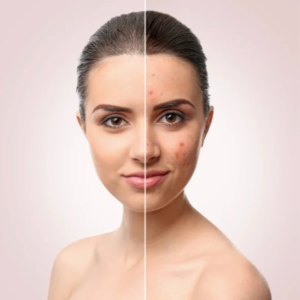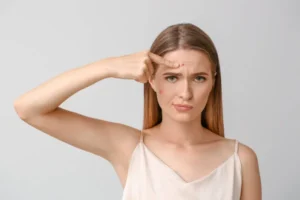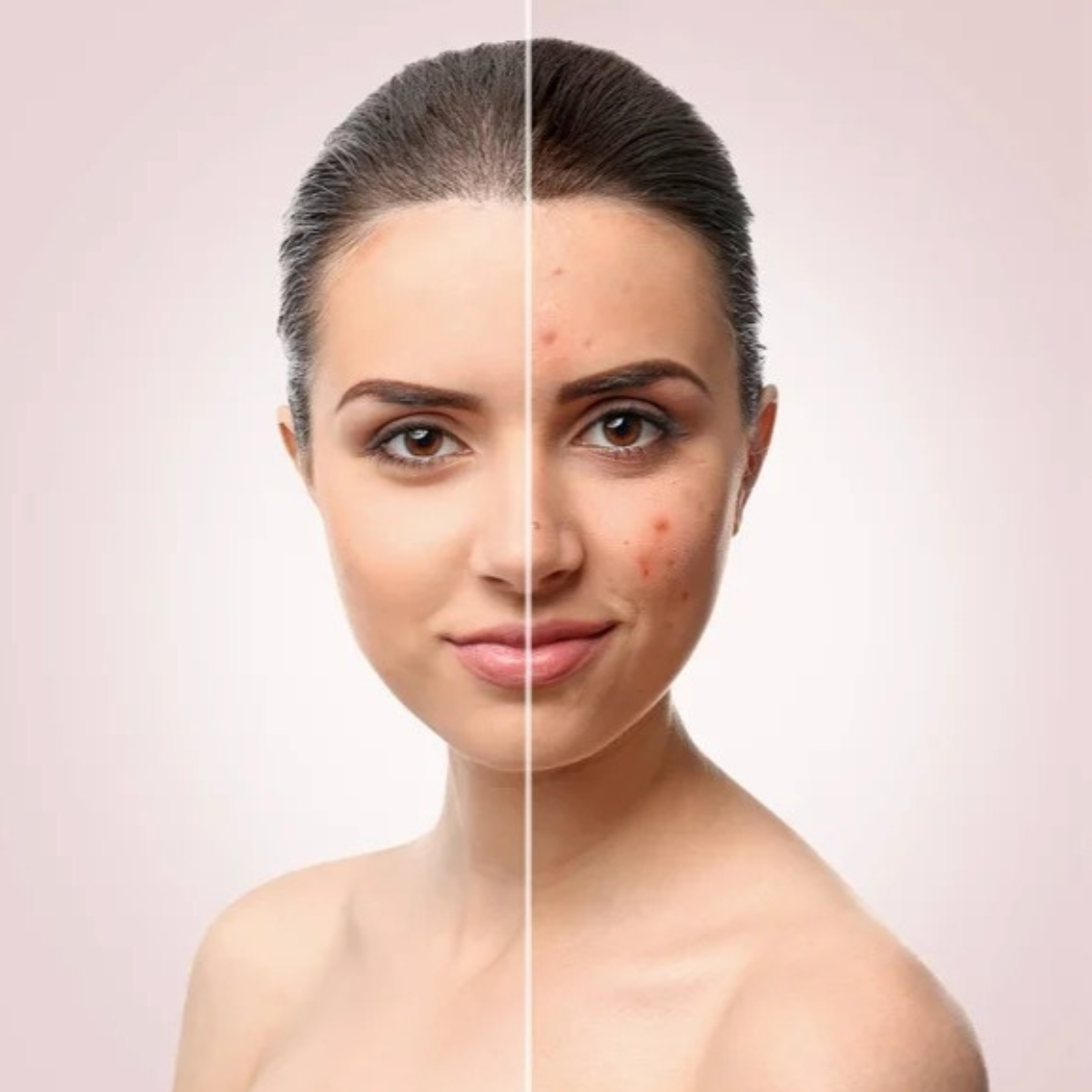Hormonal Acne Can Happen at Any Age. Here’s How to Deal – Hormonal Acne Treatment

Your thoughts likely immediately turn to the unpleasant, very red, and extremely painful pimples you endured during your teen years when you hear the word “hormonal acne.” However, those outbreaks are more than just a distant memory for many individuals. Unfortunately, hormonal acne can persist well into your adulthood (and just in time to crash that wedding you were invited to).
In actuality, adult women between the ages of 20 and 40 are most likely to experience hormonal acne. It’s common to think that once you reach your 40s, you’re immune from skin cancer, but Cherise M. Levi, D.O.1, cofounder of Ayana Dermatology in New York City, explains to SELF that this isn’t necessarily the case. Due to your body’s altering hormone levels, you may even get furious breakouts around menopause.
How can you determine whether those sudden chin breakouts are hormonal or just your regular patch of pimples if you have adult acne? Dermatologists have a few precise criteria they use to identify the cause of those bothersome lumps. Learn how to recognise hormonal breakouts and what you can do to ultimately get rid of them by reading on.
What is hormonal acne?

Breakouts caused by hormonal changes, which are generally encountered during adolescence, are known as hormonal acne.
But hormonal outbreaks can occur long into adulthood, and women are more likely to experience them than males.
A 2008 studyTrusted Source found that 25 percent of women between the ages of 40 and 49 and 50 percent of women experience acne, respectively.
Hormonal acne is typically characterised by:
acne around the cheeks and jawline
blackheads, whiteheads, or cysts
oily skin
inflammation
sensitivity
What causes hormonal acne?

And here we are again with hormones. S. Manjula Jegasothy, M.D.4, a board-certified dermatologist and the founder of Miami Skin Institute, tells SELF that progesterone and oestrogen fluctuations, which both vary significantly throughout the menstrual cycle, are the hormones that are responsible for this type of acne. The ratio of each of these hormones to one another can also have an impact on women’s testosterone levels and contribute to hormonal acne, according to the study. All of these hormones can be impacted by cortisol, the stress hormone.
According to Dr. Jegasothy, hormonal changes—which can be monthly or cyclical (or both) in women—do induce an increase in pore oil production. Although the exact reason of hormonal acne has not yet been identified, skin care professionals feel that this is how it begins5.
Hormonal Acne Treatment

It is possible to treat hormonal acne in a few different ways.
Topical Therapy
The first choice is applying topical remedies. The most popular and successful alternative for treating minor kinds of acne is this one. An over-the-counter version of one of the following will likely be prescribed by or recommended by your dermatologist:
Retinoids
Antibiotics
Benzoyl Peroxide
Azelaic Acid
Dapsone
A combination of any of the aforementioned components may also be suggested by your dermatologist in order to maximise acne-reducing efficiency.
Oral Medication
The second treatment option for more severe or persistent hormonal acne is oral medication.
Antibiotics
Lymecycline
Doxycycline
Minocycline
Hormones
Androgen Receptor Blockers
Cyproterone Acetate
Spironolactone
Drospirenone
Flutamide
Natural Treatment
The treatment of hormonal acne can be done naturally.
diet modifications
Inflammation and breakouts can be reduced by limiting dairy, artificial sweeteners, alcohol, red meat, and highly processed carbohydrates (white bread, pasta, sweets).
Tea Tree Liquid
To reduce swelling and dry out the sebaceous glands, this oil can be administered externally.
Exfoliate By removing the top layer of skin and unclogging pores, exfoliating the skin with a brush or a more abrasive scrub is effective.
Supplemental Fish Oil
Omega-3 fatty acids included in fish oil help to hydrate the skin and reduce irritation without blocking pores or creating outbreaks.
Medical Procedures
Another treatment option is medical procedures, which are often used to remove the top layer of skin that has acne, debris, oil, and other pollutants on it. Options consist of:
Microdermabrasion
Chemical peels
Phototherapy
Laser Therapy
When all else fails, isotretinoin is the most potent and well-known hormonal therapy alternative (Accutane). Because of its severe adverse effects, this medication is only prescribed in cases of severe acne. Your dermatologist will only submit this prescription to your acne pharmacy, according the American Academy of Dermatology, if you:
Enroll in a program from the U.S. Food and Drug Administration (FDA)
See your dermatologist for follow-up visits
Sign forms that state you know the risks of taking isotretinoin
Overall, hormonal acne can seriously harm both your physical and emotional health. We strongly advise you to contact your dermatologist, who will work with you to find a therapy that works because it is a very challenging condition to handle on your own! For more information about various acne issues and treatment options, get in touch with us right away.

